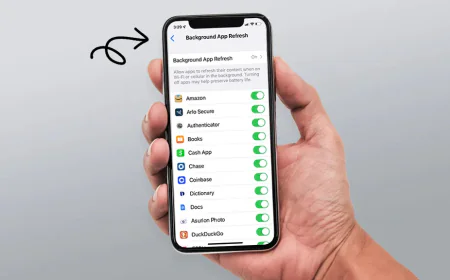Virtual CFO vs. Traditional CFO: Which Is Right for Your Business?

Surat, India, 4 December, 2024: In today’s fast-evolving business environment, companies face new financial challenges and growth opportunities that require skilled financial management. While traditional CFOs (Chief Financial Officers) have long been integral to managing corporate finances, the virtual CFO (vCFO) has emerged as a flexible alternative, especially for small and medium-sized enterprises (SMEs) and startups.
Want to get your story featured as above? click here!
Want to get your story featured as above? click here!
In this matter, CA Rishab Bothra, founder of Single Key Advisory, asks , “So, how do you decide which is right for your business?”
What is a Traditional CFO?
A traditional CFO is a senior executive who works full-time in-house, directly overseeing a company’s finances and collaborating closely with the executive team. In addition to handling financial operations, they provide insights that shape the company’s strategy, align budgets, and manage compliance with regulatory requirements.
What is a Virtual CFO?
A virtual CFO, on the other hand, is typically an outsourced professional or service provider who offers high-level financial guidance remotely. Engaged on a part-time or project basis, virtual CFOs are ideal for companies that may not need daily financial oversight but require strategic input to support growth, budgeting, and financial management.
Key Differences Between Virtual CFO and Traditional CFO
|
Aspect
|
Traditional CFO
|
Virtual CFO
|
|
Cost and Accessibility
|
High cost with salary, benefits, and office overheads. Ideal for larger firms with bigger budgets.
|
More affordable with part-time or project-based options. Suitable for SMEs and startups with limited budgets.
|
|
Engagement Depth
|
In-depth, day-to-day involvement in the business, handling internal details regularly.
|
Focuses on strategic guidance, often without daily involvement. Ideal for companies needing high-level advice.
|
|
Expertise and Specialization
|
Typically has industry-specific experience relevant to the company’s sector.
|
Brings broad, cross-industry expertise, benefiting companies needing varied perspectives.
|
|
Scalability and Flexibility
|
Full-time, on-site presence. Suited for larger firms needing stable and ongoing financial leadership.
|
Highly scalable and adaptable, allowing for variable engagement levels based on project needs.
|
|
Tools and Technology
|
Deep familiarity with the company’s ERP and reporting tools, often working with custom systems.
|
Frequently uses cloud-based software, providing real-time insights and accessibility from remote locations.
|
|
Risk Management and Compliance
|
Involved in detailed compliance, often required for highly regulated industries.
|
Can offer compliance insights but may focus on broader risk assessment rather than day-to-day compliance tasks.
|
|
Investor Relations
|
Strong presence in building and maintaining stakeholder relationships.
|
Limited direct involvement with stakeholders, often providing high-level insights for periodic investor updates.
|
When to Choose a Traditional CFO vs. a Virtual CFO
Choosing between a traditional CFO and a virtual CFO depends on factors such as company size, budget, industry requirements, and the level of financial oversight needed.
Choose a Traditional CFO, If:
● You’re a Large or Established Business: Companies with complex financial structures benefit from the full-time, in-depth guidance of a traditional CFO.
● Operating in a Heavily Regulated Industry: Sectors like healthcare, finance, and manufacturing often require in-house expertise for stringent compliance.
● Long-Term Financial Strategy Alignment: A traditional CFO helps ensure long-term alignment with business goals, providing consistency and stability.
● Extensive Stakeholder Relations: For companies with significant investor engagement, a traditional CFO maintains regular, detailed communication with stakeholders.
Choose a Virtual CFO, If:
● You’re a Small to Medium-Sized Business or Startup: For companies in early growth stages, a virtual CFO provides expertise without the high cost of a full-time executive.
● Need Financial Guidance for Specific Projects: Virtual CFOs are a great fit for project-based financial needs like restructuring or capital raising.
● Cash Flow Constraints: Businesses on tight budgets can access expert financial guidance through a flexible and affordable virtual CFO service.
● Seeking Scalable Financial Support: With the ability to scale services up or down, a virtual CFO allows companies to adapt their financial management as needed.
CA Rishab Bothra further emphasises that the decision between a traditional CFO and a virtual CFO should be driven by your business’s financial requirements, growth goals, and budgetary constraints. Traditional CFOs are ideal for larger businesses needing constant, detailed oversight and engagement. Virtual CFOs, however, offer the flexibility and cost-effectiveness that appeal to SMEs, startups, and companies in need of periodic financial insights.
Both roles can play an essential part in guiding a company’s financial health and strategic planning. By understanding the unique contributions of each, you can choose the option that aligns with your business’s goals, ensuring that your financial leadership supports sustainable growth and resilience.

















































































